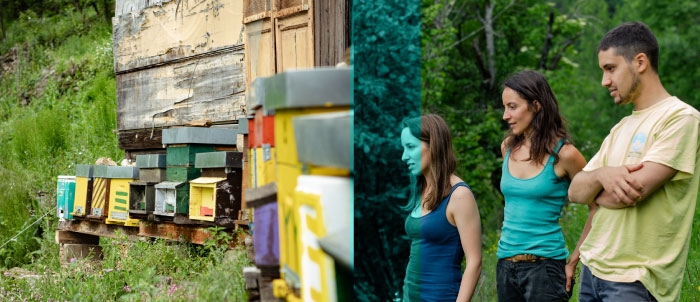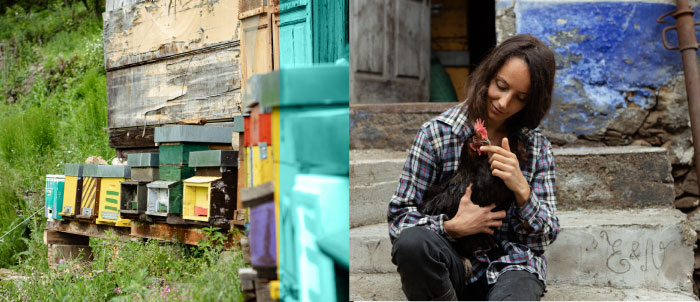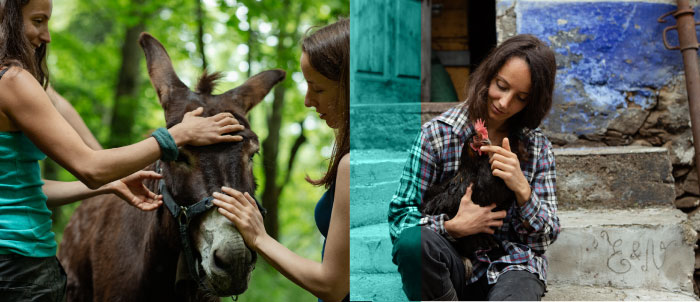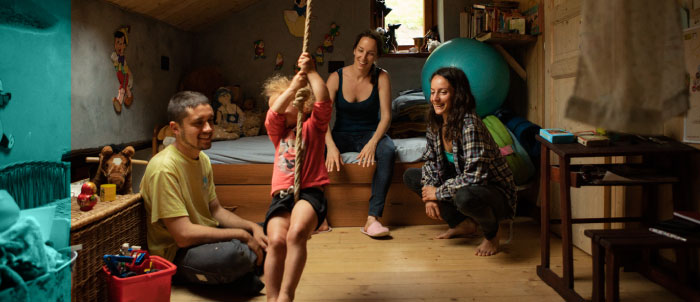LA LAOUZIERO
BUSINESS: La Laouziero
ADDRESS: Borgata Grangette 1, Perrero (TURIN)
E-MAIL: lalaouziero@gmail.com
WEBSITE: https://www.facebook.com/Borgata-Grangette
“ON-CAMPUS” COURSE: ReStartAlp 2017
“If someone had told me then that I would end up living up here, I would have thought they were crazy, and replied “Never in my life!”… Instead, here I am”
Erica Zucalli
We are at the very heart of the Waldensian Valleys, the three valleys in the Turin area – Pellice, Chisone and Germanasca – where Protestant worship spread starting in the Middle Ages.
A few steps after the plaque, carved with the name of the village, stands a letterbox. It says: “Borgata Grangette, 1, Zucalli Erica, Ambrogio Federico and Ambrogio Stella”. The last house is indeed home to Erica and Federico – both 29 years old – with Stella, their little girl born in the summer of 2017.
Their house is also the headquarters of their farm, Azienda Agricola La Laouziero, which the couple – born and raised in Turin – opened with Erica’s sister, Anita, 27 years old. They keep bees and cultivate half a hectare of land, producing honey, vegetables, and cereals. Their agricultural project goes hand in hand with that of repopulating the mountain areas.
The Protestant worship
The cult also spread to Piedmont and particularly to the three valleys west of the city of Pinerolo, in the province of Turin. Before the end of the 16th century, the Duke of Savoy allowed Waldensians to profess their faith on the condition that they lived in the Waldensian valleys.
They had to wait until 17 February 1848 to see their civil and political rights recognised by Carlo Alberto. Every year, the anniversary of that historic event is celebrated with the “fire of freedom”, a large bonfire that is lit in every village. “On that night, you can see fires glowing in the dark – it’s a magical moment,” explains Federico as he passes by the pile of wood and brambles awaiting the coming winter. “Here in the hamlet of Borgata Grangette, this tradition has resumed following our arrival. Even though we don’t belong to the Waldensian Church, we like to celebrate freedom,” emphasises Erica.







